Let’s face it: organization can feel like the world’s most boring buzzword, especially for those of us with neurodivergent brains. It conjures up images of pristine planners, color-coded filing systems, and the kind of Pinterest-perfect pantries that seem designed to make the rest of us feel like human chaos gremlins. But here’s the thing: organization isn’t about achieving perfection. It’s about creating systems that make your life easier, not harder. So, let’s break this down into manageable (and dare I say, entertaining) pieces.
Physical Organization: It’s Not About Being Tidy
First things first, let’s tackle the myth that being organized means having everything look like a showroom display. Spoiler: it doesn’t. Your space can be messy and still functional—what matters is that you know where things are.
For instance, you might have a stack of papers on your desk that looks chaotic to others but makes perfect sense to you. It’s not about appearances; it’s about usability. Need that tax document? Boom, it’s in the middle of the “organized chaos” pile.
However, even organized chaos benefits from a system. Maybe you dedicate one drawer to paperwork and another to crafting supplies. Bonus points if you label them—for yourself or anyone else who might need to find things without interrupting you every five minutes.
And remember, sometimes “disorganized” is just code for “I haven’t had the energy to deal with this yet.” Cut yourself some slack. Rome wasn’t built in a day, and your filing system won’t be either.
Digital Organization: The Desktop Apocalypse
Ah, the desktop. For many, it’s a graveyard of forgotten files, screenshots, and downloads. If your screen looks like a cluttered junk drawer, you’re not alone. This isn’t just a lack of tidiness; it’s often about object permanence. If you put that file away, will you remember it exists? Maybe not.
A simple solution? Create an “In Progress” folder. Toss everything you’re currently working on into it so it’s all in one place but not cluttering your screen. Then set a reminder to go through it once a week. Think of it as digital laundry—annoying but necessary.
For your long-term digital storage, try sticking to a clear folder structure. Have one for work, one for personal files, and so on. Name folders in ways that make sense to you, not some idealized version of yourself. “Stuff to Deal With Later” is valid if it works.
Mental Organization: Taming the Brain Circus
Neurodivergent brains tend to run a three-ring circus: constant thoughts, endless ideas, and an unhelpful tendency to forget what you were doing mid-task. Enter: systems. The key isn’t to suppress the chaos but to manage it.
Start with a brain dump. Grab a notebook or open a note on your phone and write down everything. Don’t worry about order; just get it out of your head. Once it’s down, sort it into categories like “urgent,” “can wait,” and “why did I even write this?”
Another lifesaver? Calendars and reminders. If it’s not written down or scheduled, it doesn’t exist. Seriously. Trust your tools, not your memory, and watch your stress levels drop like a rock.
Team Organization: Herding Cats Like a Pro
If you work with a team, you know that getting everyone on the same page can feel like herding cats. The secret isn’t about controlling every detail; it’s about setting up frameworks that let your team function even when chaos strikes.
Shared calendars and task management tools are your best friends here. Apps like ClickUp or Trello can make a world of difference, as long as everyone uses them consistently. And yes, enforcing that consistency might require some gentle nagging.
Also, don’t underestimate the power of clear communication. Spell out who’s responsible for what and when it needs to be done. Ambiguity breeds procrastination, and nobody has time for that.
The Secret Sauce: Systems, Not Perfection
At the heart of staying organized is one simple truth: it’s about systems, not perfection. Systems give you something to fall back on when life inevitably goes sideways. They’re like training wheels for your brain.
Take your pantry, for example. If you know you’ve got a backup stick of butter in the fridge and another in the freezer, you’re prepared for both spontaneous baking and everyday cooking. It’s not about having a magazine-worthy kitchen; it’s about not running out of butter at the worst possible moment.
The same principle applies to your business. Whether it’s organizing client files, tracking expenses, or managing your inbox, having a system means less time spent searching and more time doing. Plus, you’ll avoid accidentally buying the same software three times. (We’ve all been there.)
At the end of the day, your organization style is yours alone. It doesn’t have to look like anyone else’s, and it doesn’t have to be perfect. The goal isn’t to impress; it’s to make your life easier.
So, embrace your quirks, build systems that work for you, and don’t sweat the small stuff. Whether your “piles” are physical, digital, or mental, remember: you’re not disorganized. You’re just inventing a new kind of order—your kind.


